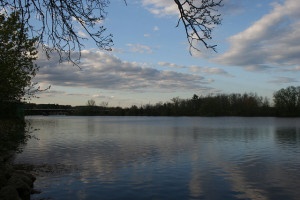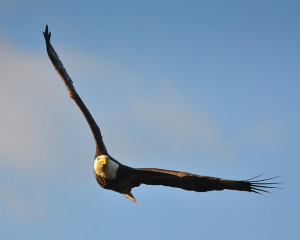We have much more to do and your continued support is needed now more than ever.
Wildlife Friendly Solutions to Flooding and Other Water Challenges
Imagine your house regularly floods when the local river leaves its banks after a heavy rain. Now imagine that your Congressman announces a plan to build a levee along the river to protect you and your neighbors, and even better, the federal government is picking up more than half of the tab for this multi-million dollar levee. The decision is made and the levee is built.

This hypothetical is real – but we can fix it
Unfortunately this story is not just in our imaginations. Time and time again the federal government sponsors levees and other large structural projects like sea walls and dams that solve a water challenge, but create a whole host of other public safety and wildlife impacts.

Let’s go back in time again to when your Congressman is working with the federal government on solving your flooding problem. This time, instead of the levee, the federal government, guided by stronger federal water guidelines, chose to convert an abandoned industrial park along the river into wetlands.
Now fast forward 10 years. The wetlands are in place and you notice that the fishing is better! You also have a boardwalk through the new wetlands, which is your favorite place to see a nesting pair of bald eagles that just moved in, because the fishing is so good. And your neighboring towns have less flooding and cleaner water with more fish.
These better restoration solutions can become a reality in communities all over the country, but we need stronger federal water planning guidelines to get us there. National Wildlife Federation has been working for more than a decade on new federal water planning guidelines that require low impact, restoration and non-structural approaches to addressing flooding and other water challenges when those measures could provide an appropriate level of protection or benefits. But the White House’s latest “draft Interagency Guidelines” do not include this requirement.
Take Action for Clean Water and Wildlife!
Fortunately it is not too late to make a difference! The White House is taking comments until Thursday June 27th on new “draft Interagency Guidelines” where they can, if they choose to, include this requirement.
Tell the White House that we don’t need to choose between a healthy environment and solving water challenges – that we need strong federal water guidelines that only allow levees and other structural projects to be built when nonstructural and restoration solution are not available.
![]() For clean water, bald eagles and great fishing, contact the White House today!
For clean water, bald eagles and great fishing, contact the White House today!





















